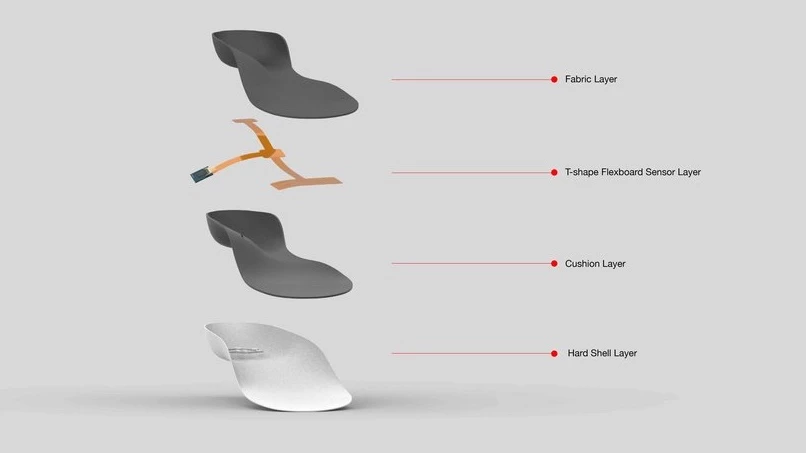Because diabetics often lack feeling in their extremities, they're prone to developing skin ulcers on their feet. These wounds are notoriously difficult to treat, sometimes leading to amputations. A new insole, however, is designed to keep those ulcers from forming in the first place.
The device was developed by Linh Le, when he was pursuing a doctorate in chemical engineering at New Jersey's Stevens Institute of Technology. He is now CEO of Bonbouton, a spinoff company that has commercialized the technology.
Worn inside a regular pair of shoes, a set of two insoles each utilize a network of graphene-based sensors to measure changes in pressure and skin temperature at various points along the sole of the foot.

If the data indicates that localized inflammation is occurring, the Bluetooth-equipped insole automatically sends an alert to an iOS/Android app on the wearer's smartphone, letting them know that an ulcer is about to form. That app also advises users on the best course of action to take, plus it can be set up to alert other people, such as doctors or family members.
The insoles are powered by included non-rechargeable batteries, and are said to last for four months before requiring replacement. A rep tells us that the company plans on offering a subscription service in the range of US$25 to $50 per month, beginning in the fourth quarter of next year.
And no, this isn't the first ulcer-preventing footwear we've seen. Scientists from The Hebrew University of Jerusalem and Germany's Fraunhofer Institute for Silicate Research are developing pressure-sensing socks, while San Francisco-based startup Siren sells electronic socks that monitor skin temperature.
UPDATE (Aug. 26/20): Bonbouton has rebranded, and is now called Flextrapower.
Sources: Stevens Institute of Technology, Flextrapower




